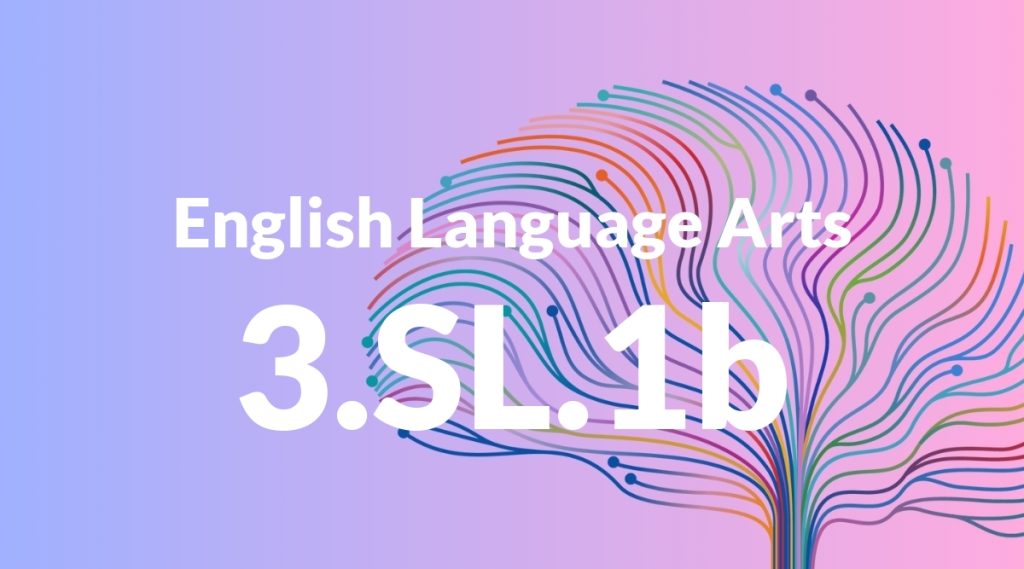Standard: 3.SL.1b – Follow agreed-upon rules for discussions (e.g., gaining the floor in respectful ways, listening to others with care, speaking one at a time about the topics and texts under discussion).
Grade level: Grade 3
Subject: English Language Arts
Domain: Speaking & Listening
Teacher Overview
This standard emphasizes the importance of following agreed-upon rules for discussions. It helps students learn to communicate respectfully and effectively, which is crucial for collaborative learning and social interactions. Students should understand basic conversation etiquette, such as taking turns speaking and listening attentively. They should also be familiar with the concept of rules and why they are important in group settings.
After mastering this standard, students will develop advanced communication skills, including the ability to engage in more complex discussions, present arguments logically, and respect diverse perspectives. They will also learn to facilitate discussions and mediate conflicts.
Common Misconception 1
Some students may think that interrupting is acceptable if they have something important to say. This is incorrect because it can disrupt the flow of conversation and shows a lack of respect for the current speaker.
Intervention 1
Teach students to use signals, like raising their hand, to indicate they want to speak. Reinforce the importance of waiting for their turn by modeling and practicing this behavior in class.
Common Misconception 2
Others might believe that listening means simply being quiet, rather than actively engaging with the speaker’s message. This is incorrect because true listening involves understanding and responding to what the speaker is saying.
Intervention 2
Encourage active listening by having students summarize what the previous speaker said before adding their own thoughts. Use role-playing exercises to practice this skill.
Prerequisite Knowledge
Students should understand basic conversation etiquette, such as taking turns speaking and listening attentively. They should also be familiar with the concept of rules and why they are important in group settings.
Subsequent Knowledge
Students will develop advanced communication skills, including the ability to engage in more complex discussions, present arguments logically, and respect diverse perspectives. They will also learn to facilitate discussions and mediate conflicts.
Instructional Activities
- Role-playing respectful discussions
- Group projects with assigned discussion roles
- Listening and summarizing exercises
- Classroom debates
- Peer feedback sessions




